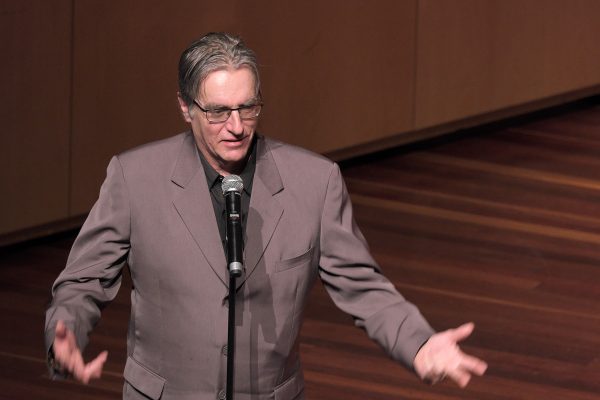
Music / “Journeys: Music of Michael Dooley.” At Llewellyn Hall, July 4. Reviewed by HELEN MUSA.
THIS concert was an affirmation of the strength in Canberra’s musical scene and in particular the ANU School of Music, with all soloists its graduates and an orchestra featuring top ANU students.
The works were all composed by Canberra’s Michael Dooley. Notably, considering how little new music is ever performed more than once, not one was a world premiere, the opening piece, “Australian Landscapes” having even been premiered by Andrew Rumsey at the Australian Embassy in Washington DC.
“Journeys” was initially conceived of and funded as a recording project, but when Dooley realised that he had the full facilities of Llewellyn Hall available for a whole day, he and violinist Tim Wickham, acting as a kind of producer, decided to turn it into a concert, with Max McBride conducting an orchestra of nearly 40 musicians performing three significant suites of music by Dooley before a respectable paying crowd of music supporters.
Dooley himself stepped up to the microphone, perhaps a little too often, to tell us what was going on.
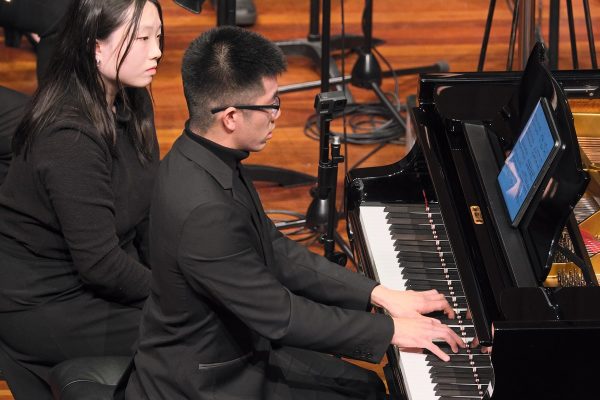
The opening work “Australian landscapes,” performed with pianist Aaron Chew as soloist, was an impressionistic, pictorial piece in five sections, suggesting five different landscapes – the gentle rippling of a river, the sparser outback, the ocean, quietly resonant at first but turning turbulent, the rolling hills of the southern tablelands, and finally, the grandeur of a mountain range, touched at one point with a sprinkle of snow. Chew played with strength and intelligence, backed by the full range of the orchestra, used by Dooley to paint the the details of the landscapes.
The central composition of the evening, “The Land that is very far off,” which was first aired at Wesley Music Centre in 2019, focused on emotions rather than pictures.
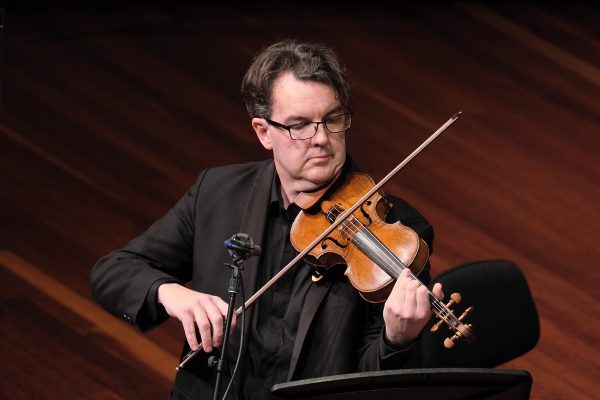
With Wickham as violin soloist and Anthony Smith on piano, the three movements, “Longing,” “Journey” and “New Country” were performed seamlessly to become one. Based on a melody that Dooley had written when a teenager, the work intentionally countered the composer’s complaint that that “we are afraid of sentiment, so we took away sentimentality”. Wickham necessarily dominated this work with his subtle variations on the solo melody, in one very fine moment, his pizzicato perfectly matching Smith’s piano equivalent.
The final work in Dooley’s musical journey was the largest, his first piano concerto, titled “Grace and Truth”, originally played by Andrew Rumsey and the National Capital Orchestra in 2019.
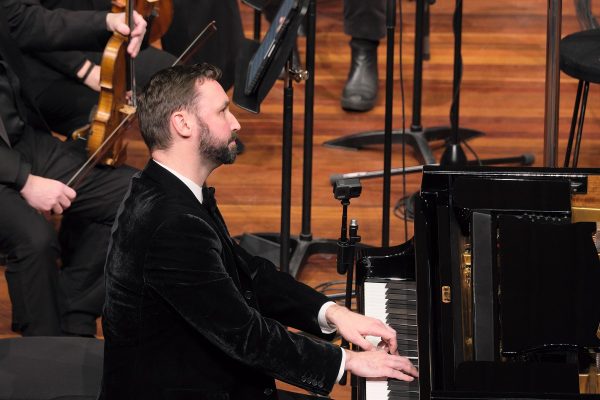
In part it was a showpiece for Rumsey, although the first movement, “Misterioso – Vivace”, held him back in favour of the full orchestra for some time before he had a chance to show us his capacities. In this section, Dooley plays with the potentials of minor versus major keys – the minor suggesting the intimidating quality of truth and the major the melodic and lyrical qualities of grace. Throughout the movement, one key played off against the other, sometimes transitioning imperceptibly, most pleasing to the ear.
The second movement in the concerto, the adagio, was of personal significance to Dooley, whose late mother had played clarinet and late father the cello. Here Rumsey’s piano shared the limelight with Sam Payne on cello and, echoing the melodic line, Thomas Azoury on clarinet. Never flashy, the movement rose to a positive crescendo intended by the composer to represent a heavenly reunion.
The final vivace movement, where the concerto’s previous themes were combined, gave Rumsey, whose right and left hands were heard work in different directions, the chance for pianistic fireworks as McBride and the full orchestra brought the concert to a conclusion.
Well not quite. The bows having been taken, Dooley returned to the stage, saying: “I just wanted to play the big Steinway”, to perform his short work, “Fields of Freedom”.
Who can be trusted?
In a world of spin and confusion, there’s never been a more important time to support independent journalism in Canberra.
If you trust our work online and want to enforce the power of independent voices, I invite you to make a small contribution.
Every dollar of support is invested back into our journalism to help keep citynews.com.au strong and free.
Thank you,
Ian Meikle, editor
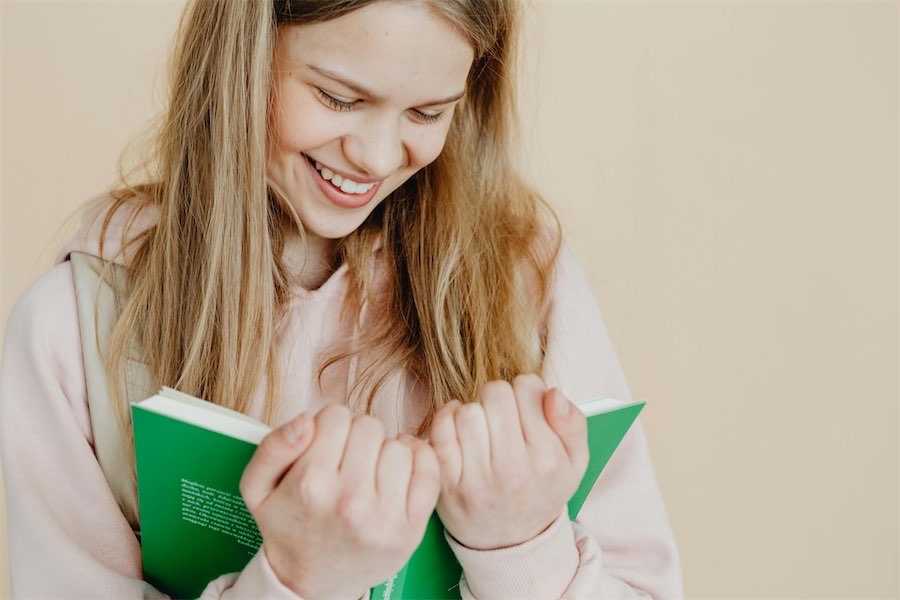
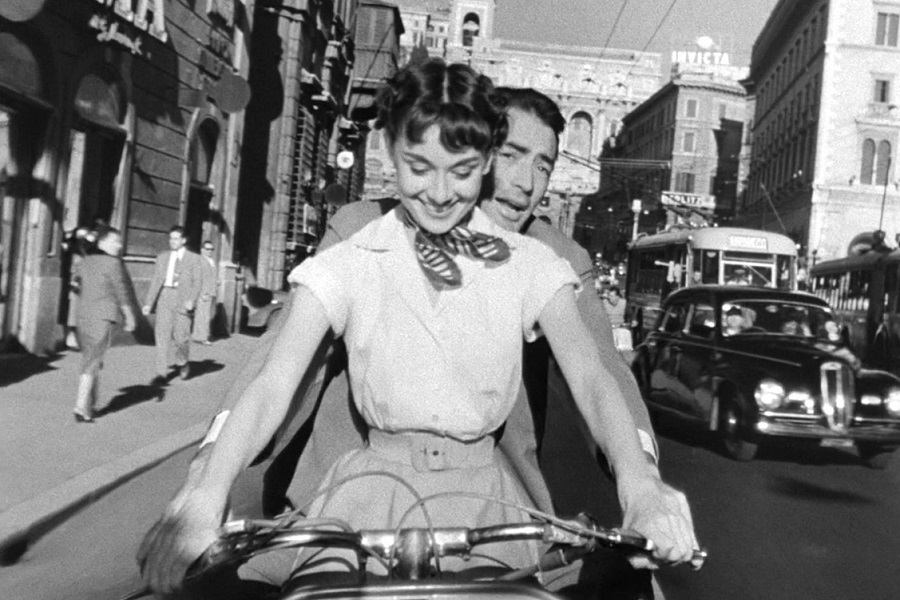
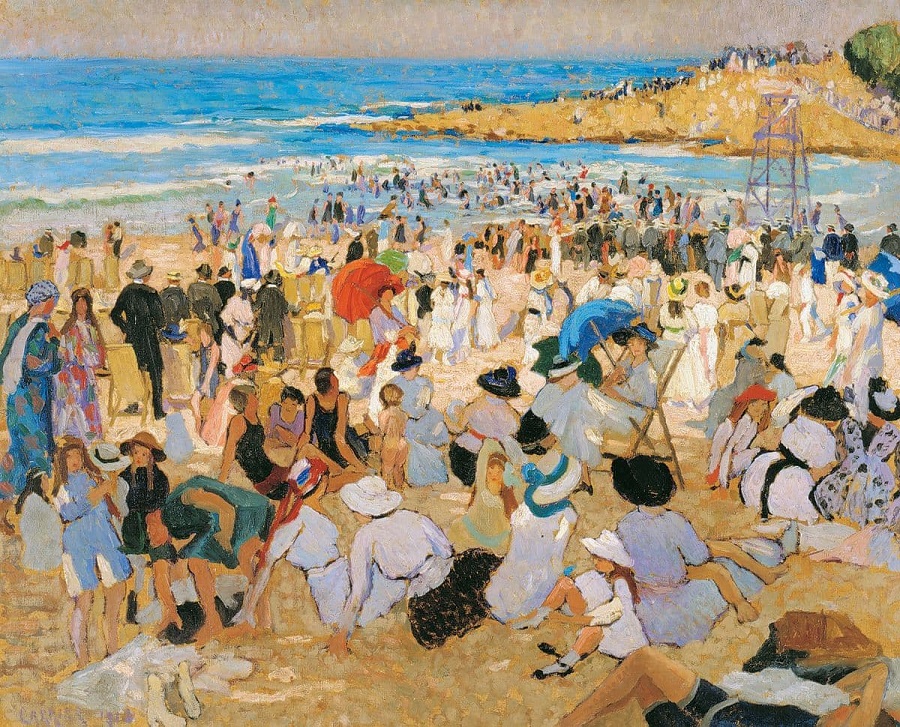

Leave a Reply